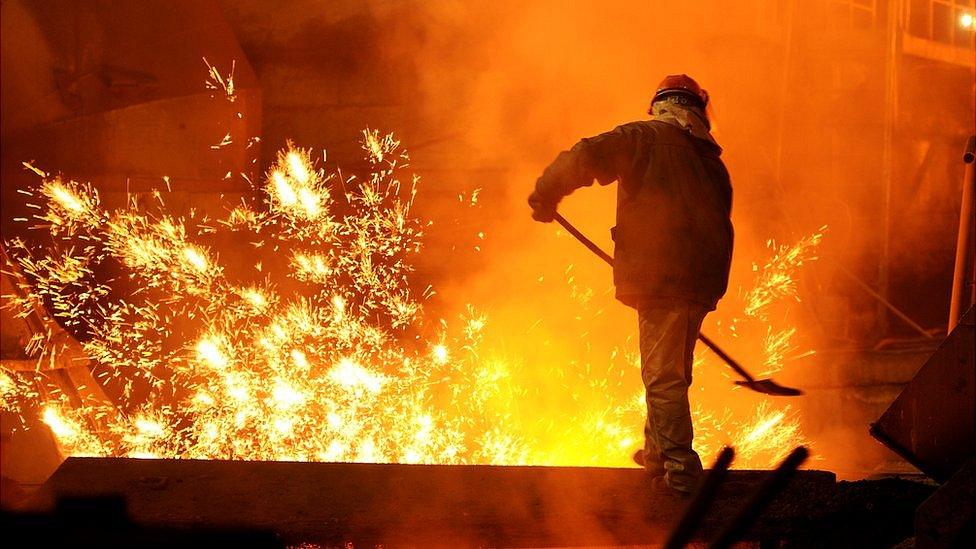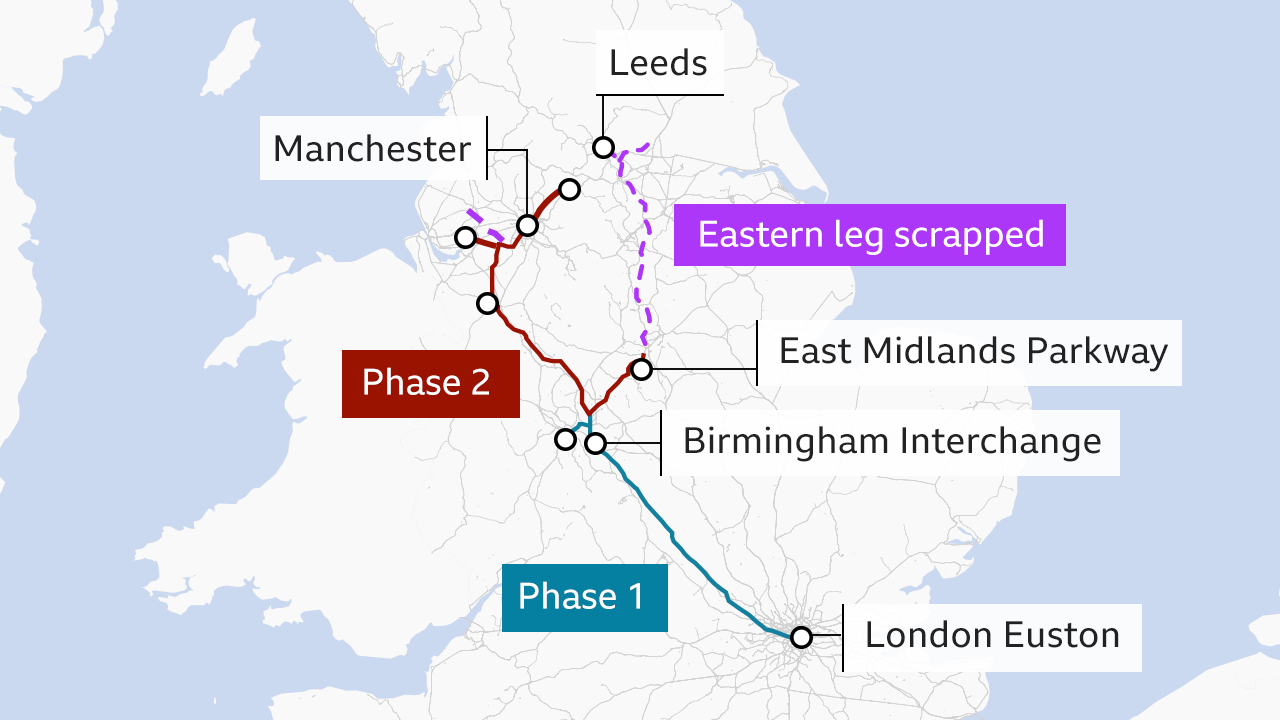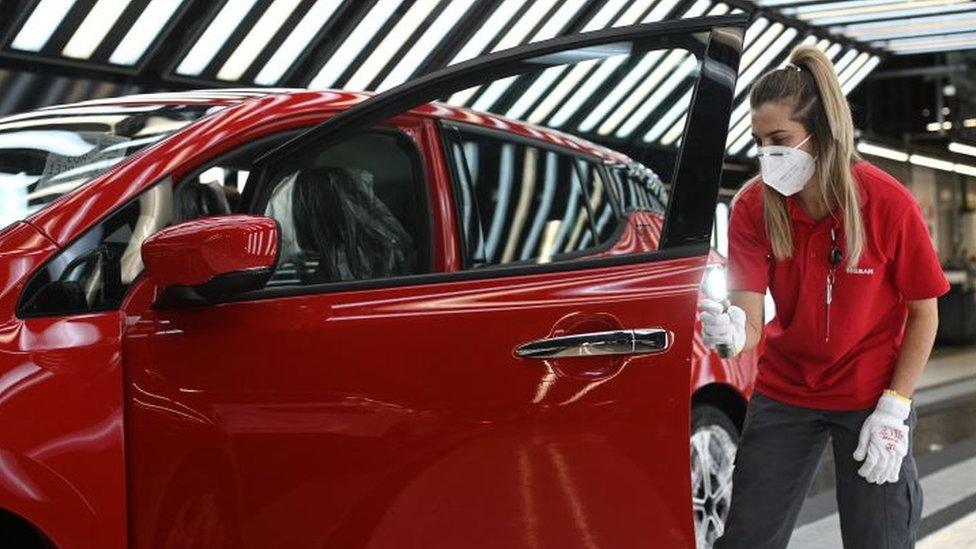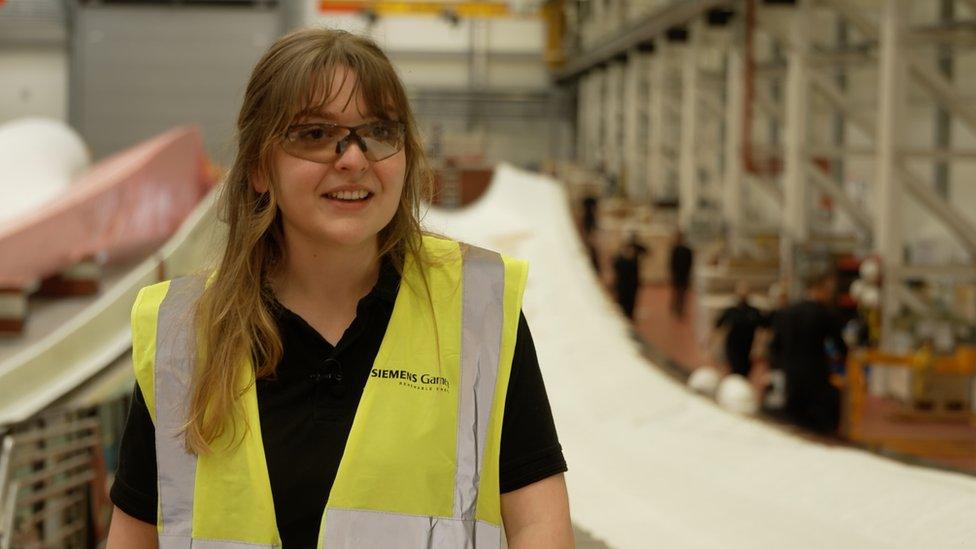Do more to end North-South divide, CBI tells government
- Published
- comments
CBI boss Tony Danker says economic growth should be across the UK
Economic growth must be evenly spread around the UK rather than concentrated in south-east England, the boss of the CBI business group has said.
Speaking at the CBI's annual conference, director general Tony Danker said that "levelling up" could not be left to the free market.
He added "high-valued" sectors, firms and jobs were needed across the UK.
Boris Johnson told the same conference levelling up was still his "moral mission" and an "economic imperative".
The prime minister also defended the scaled-back plans for rail in the North, insisting the government's new schemes would still be "transformatory".
Meanwhile, Labour leader Sir Keir Starmer outlined "five fiscal rules" at the CBI conference that the next Labour government intended to follow, saying the Conservatives had "missed an opportunity to remake Britain" with the autumn Budget.
'New industrial revolution'
Mr Danker told the CBI conference that the headquarters of many businesses were currently "too often based in London and the South East", with the UK operating as a "branch line economy", showing that the free market had failed to create prosperity across the country.
But he said the rise of new industries such as biotech provided the opportunity for a "new industrial revolution" across the UK and "a shot at redemption".
"For five decades we've had no idea how to [tackle the divide], but now we've got industries like clean and renewable energy, life sciences, cyber-security and they don't have to be based in the South East," Mr Danker told the BBC's Today programme earlier on Monday.
The CBI is concerned that old industries such as textiles in Lancashire, shipbuilding on the Clyde, and steel in Sheffield have been allowed to "die" since the 1980s.
It also disagrees with the government's decision to scrap the Leeds leg of the HS2 high-speed rail line, which was originally billed as being key to levelling up.
Last week, the government dropped plans to extend the HS2 line to Leeds and said the Northern Powerhouse Rail route from Liverpool to Leeds would run partly on existing lines rather than new ones.

Many cities became known for the industries which operate in them, such as steel production in Sheffield
The CBI also thinks firms should be encouraged to cluster in towns, and should have more power in decisions over local infrastructure and in coming up with economic strategies.
Mr Danker told the Today programme: "I do think we need a much firmer, more ambitious growth strategy from the government.
"At the end of the day, if we [the UK] don't get growth up back to our pre-crisis, pre 2008 growth rates, what we're going to have is cuts to spending, rises in taxes, so growth has to be the North Star."
Speaking at the same conference, the prime minister acknowledged there were "chronic problems" underlying the UK economy, including the imbalance between firms which were "go-getting world-beaters" and the "long comet tail" of firms which lacked the necessary skills and investment to boost productivity.
But he said levelling-up was achievable and would help the UK become a bigger economy than Germany.
"If this country could achieve the same kind of geographical balance and dispersion of growth and wealth that you find in most of our most successful economic comparators, and if all our businesses could reach more balance in their levels of productivity, then there would be absolutely no stopping us.
"We would achieve - what I believe we can - and become the biggest and most successful economy in Europe."
Labour's Sir Keir told the CBI conference that the next Labour government would make a "contract" with business where it made fiscal discipline and investment into skills a priority.
"What we need now is a sector-by-sector plan, for the car industry, for the steel industry, for all industry - our competitors are already doing it, we can't afford not to," he said.
"This is our side of the contract - to run a stable government and a tight ship, to equip the next generation for work, to invest in British business and to create a wave of high-skilled jobs."
- Published18 November 2021

- Published11 November 2021

- Published24 May 2021
